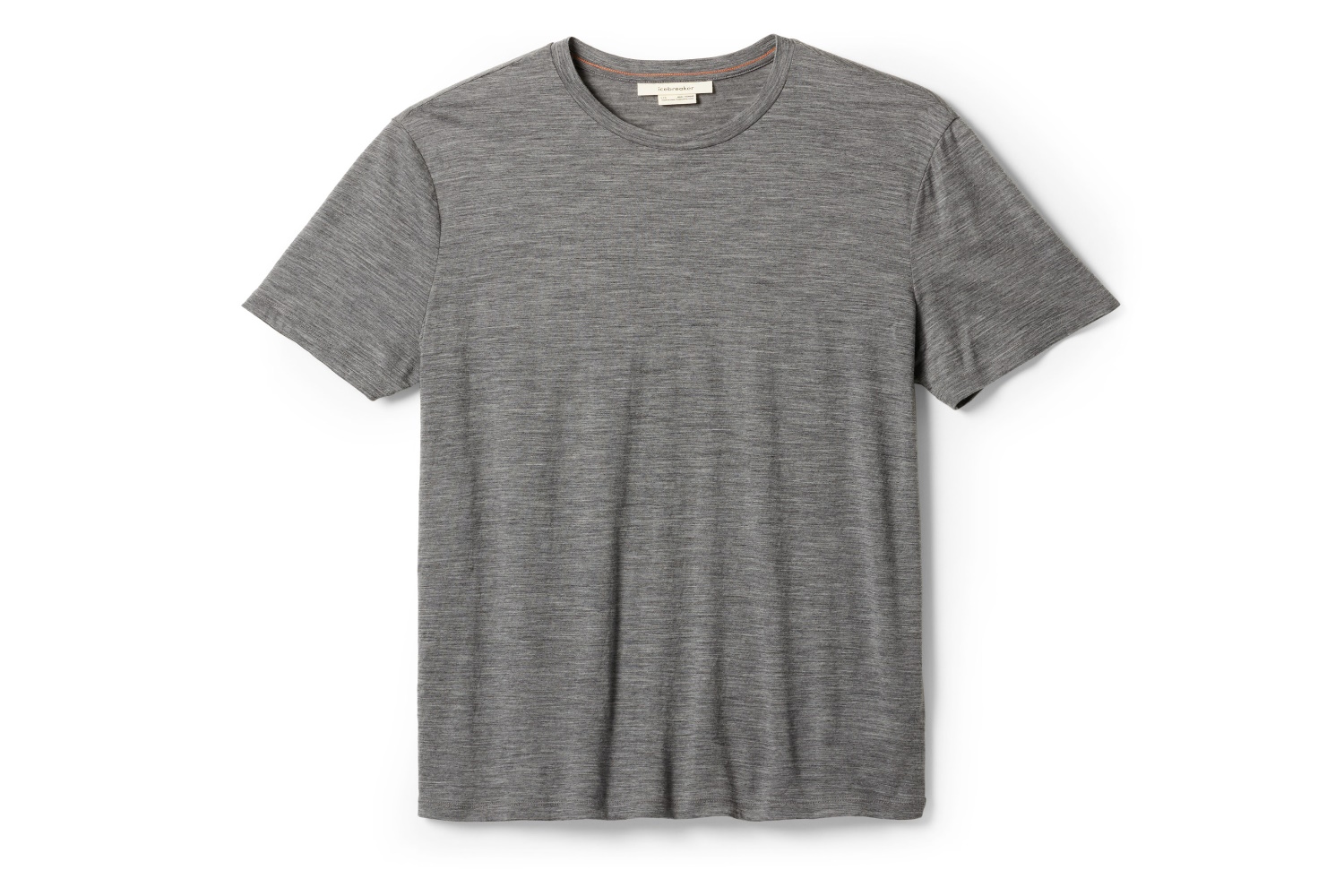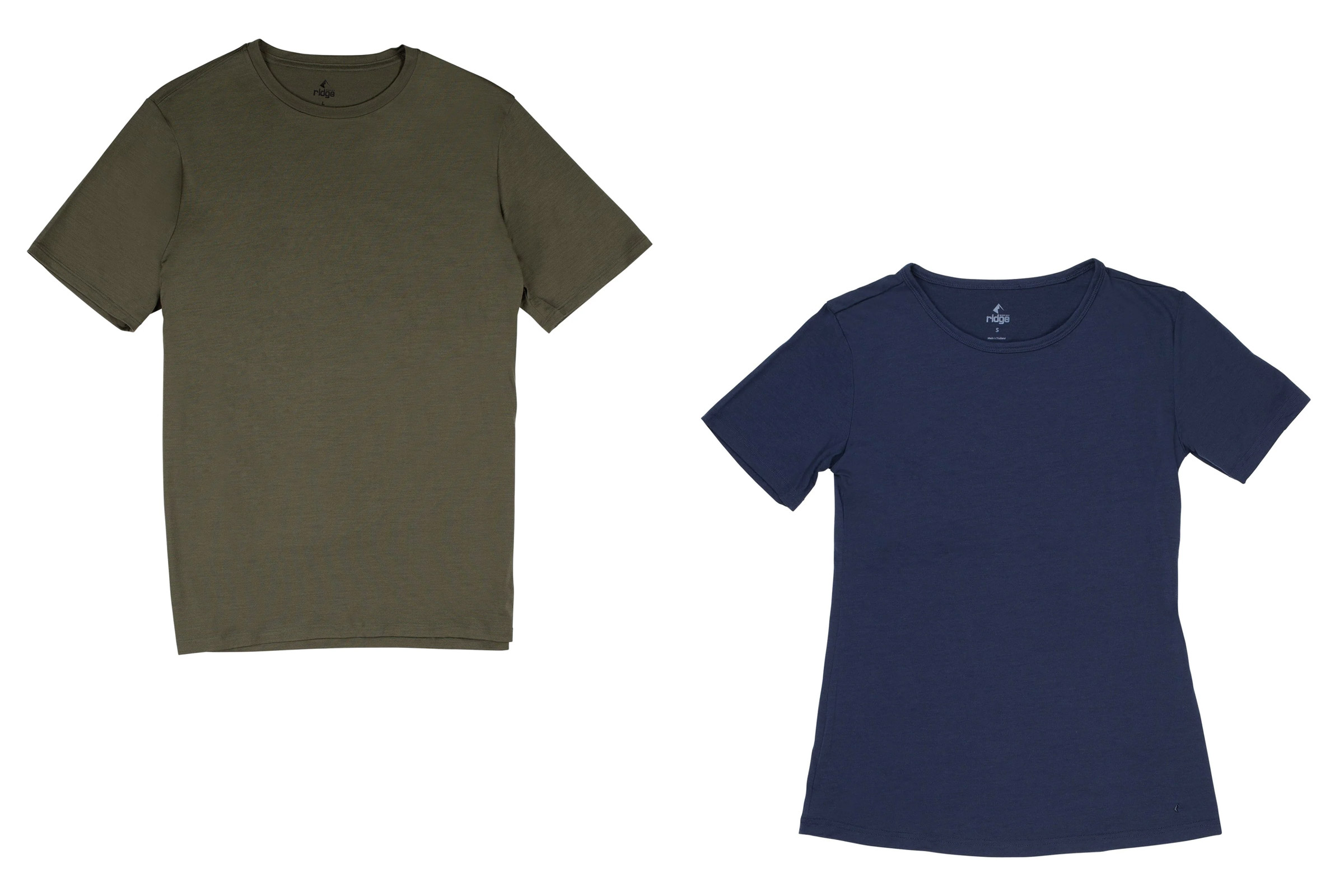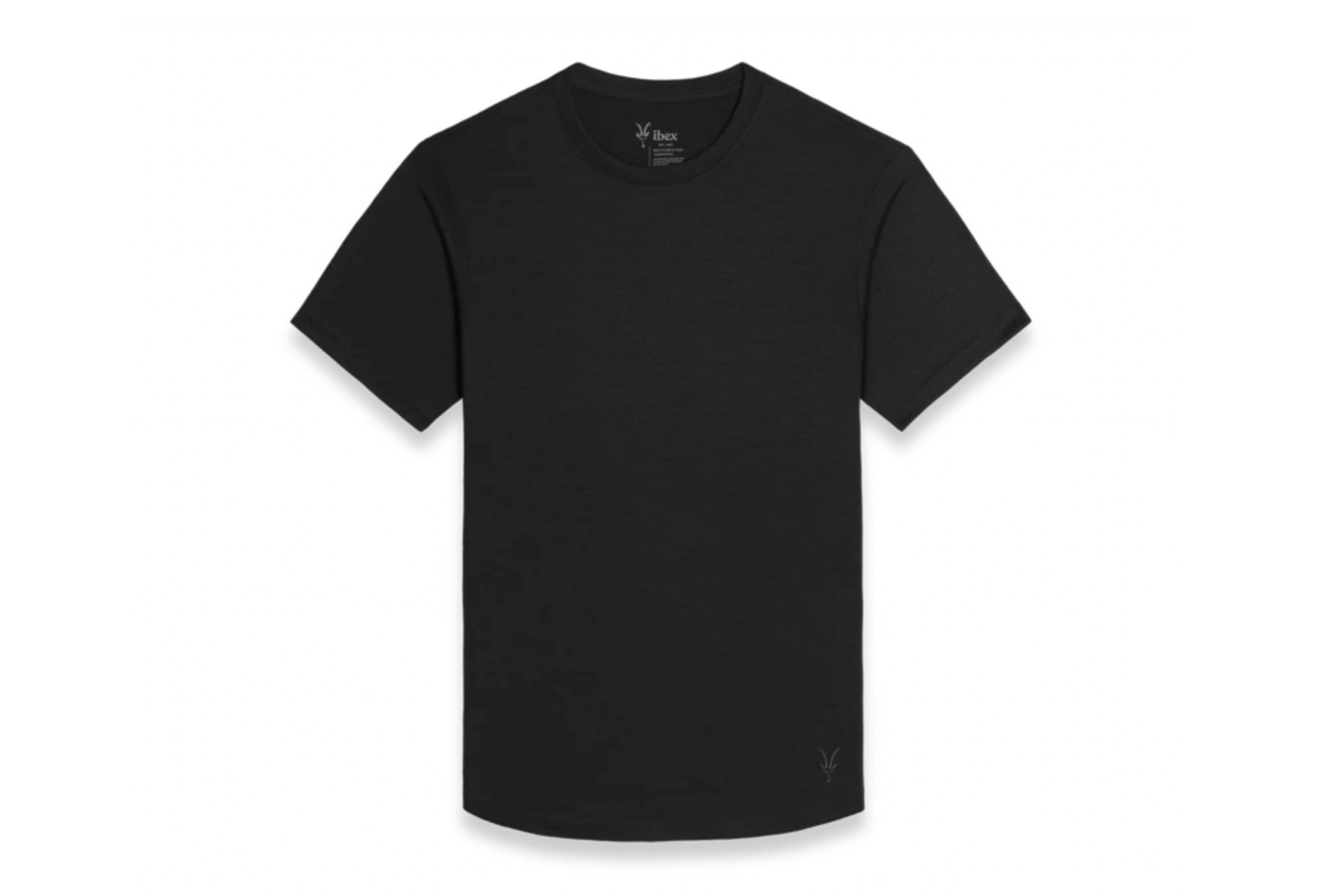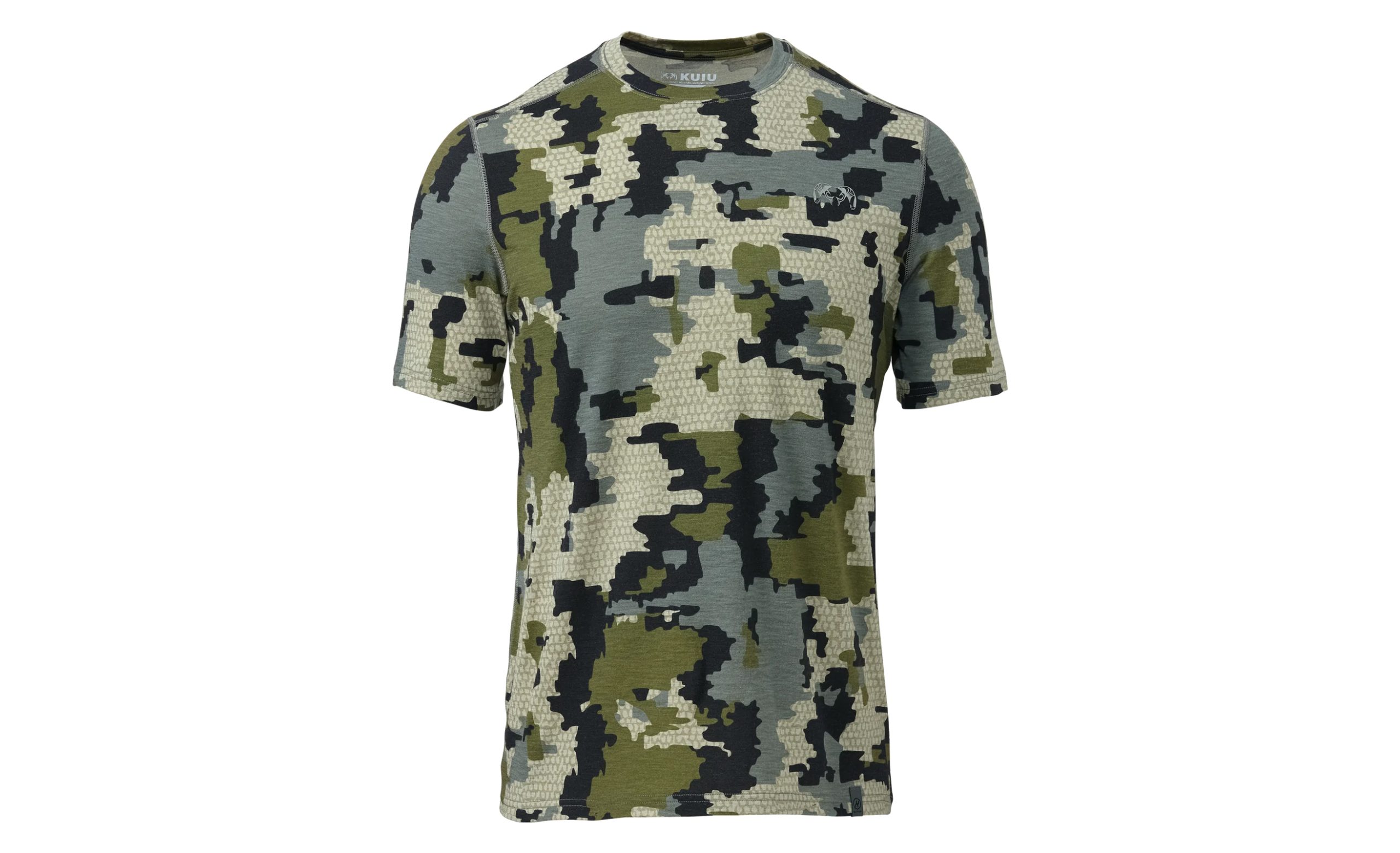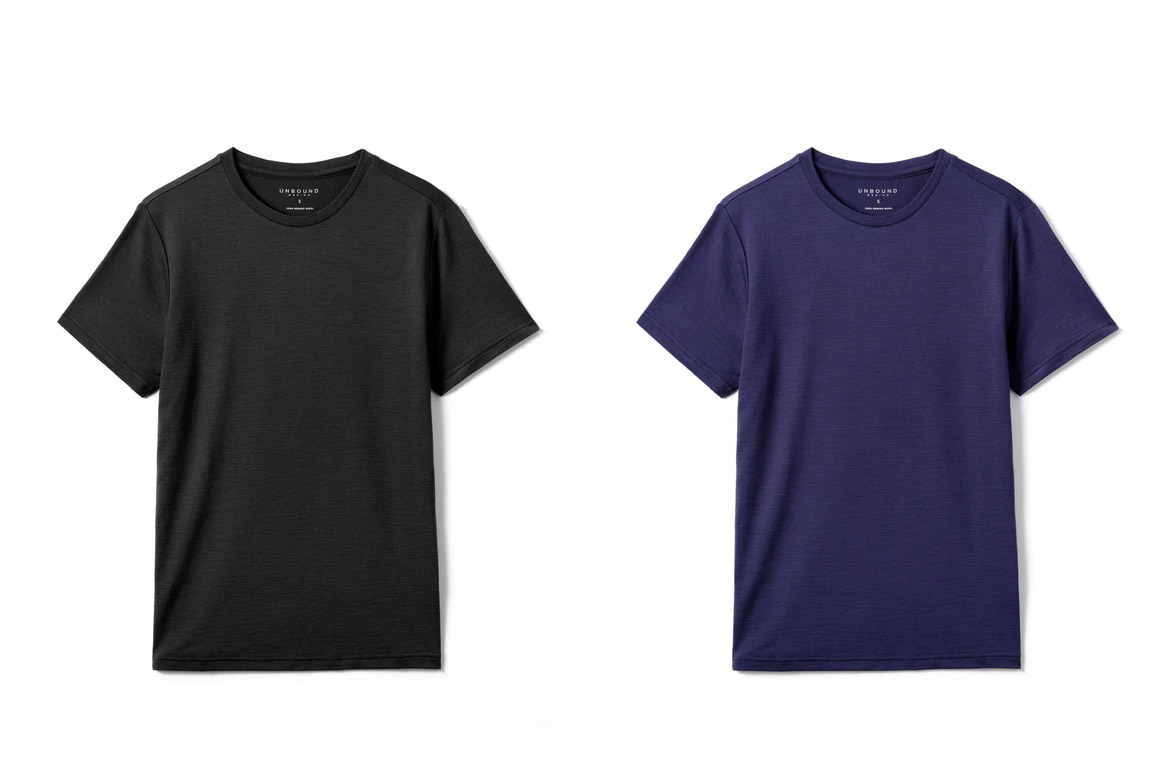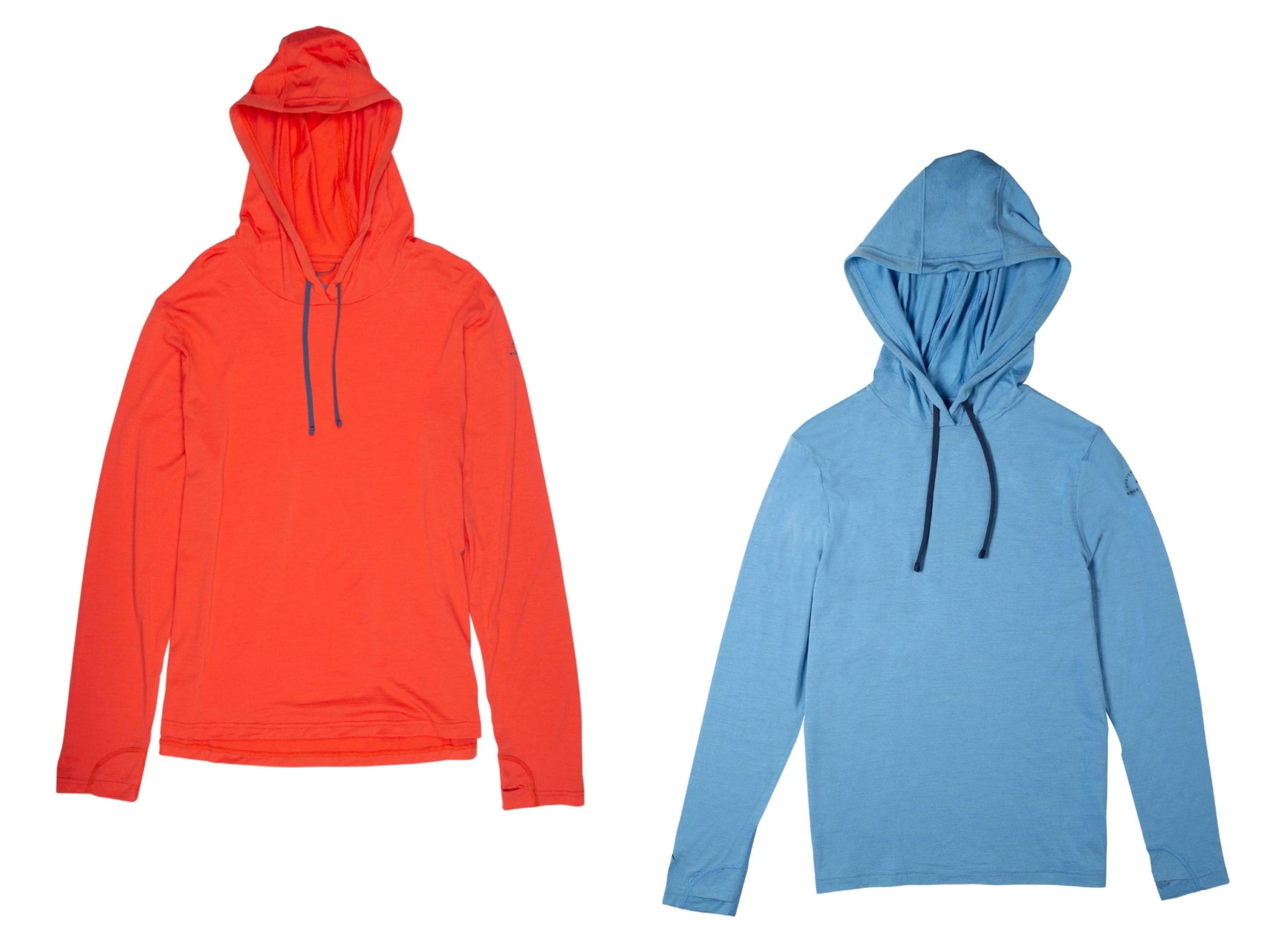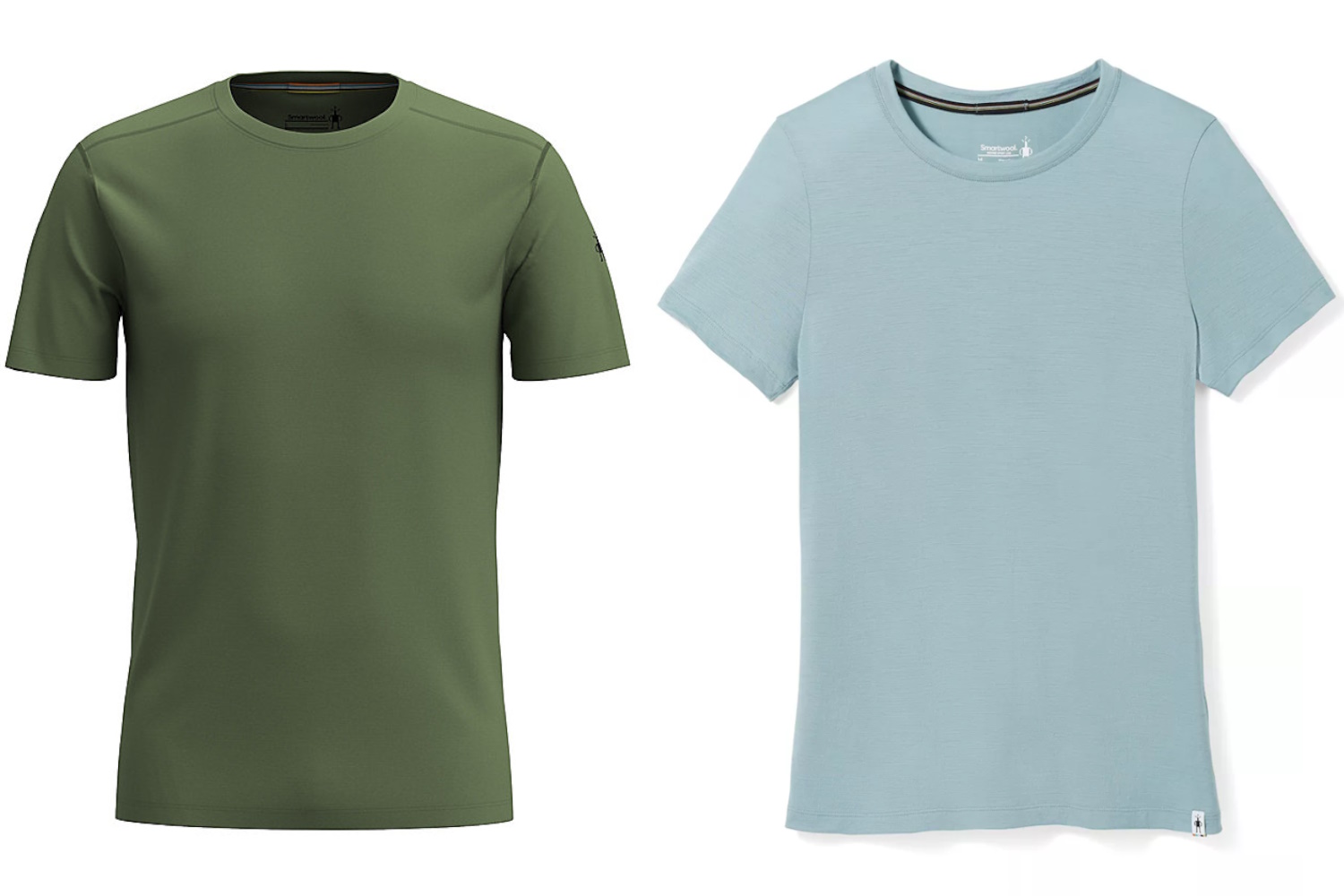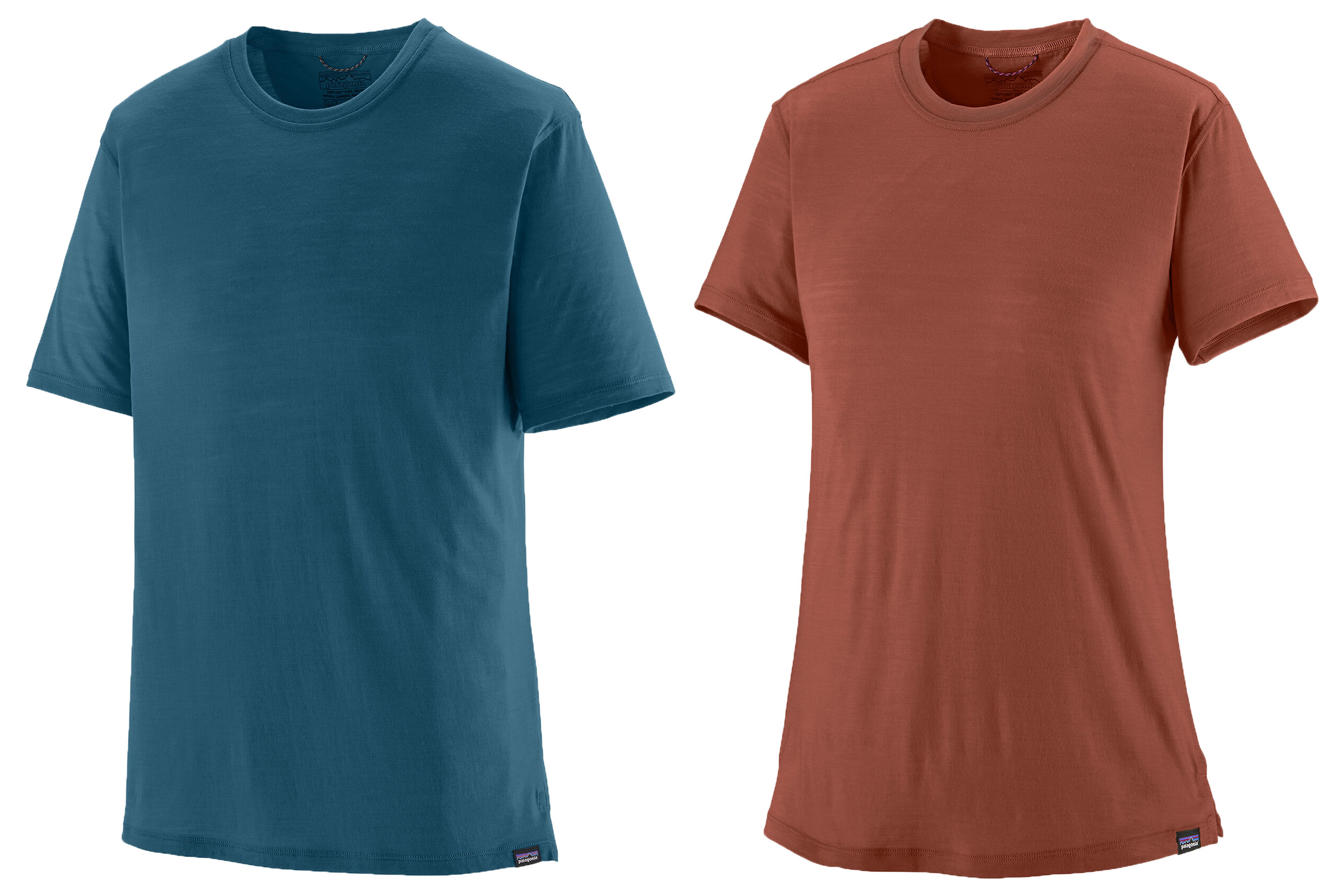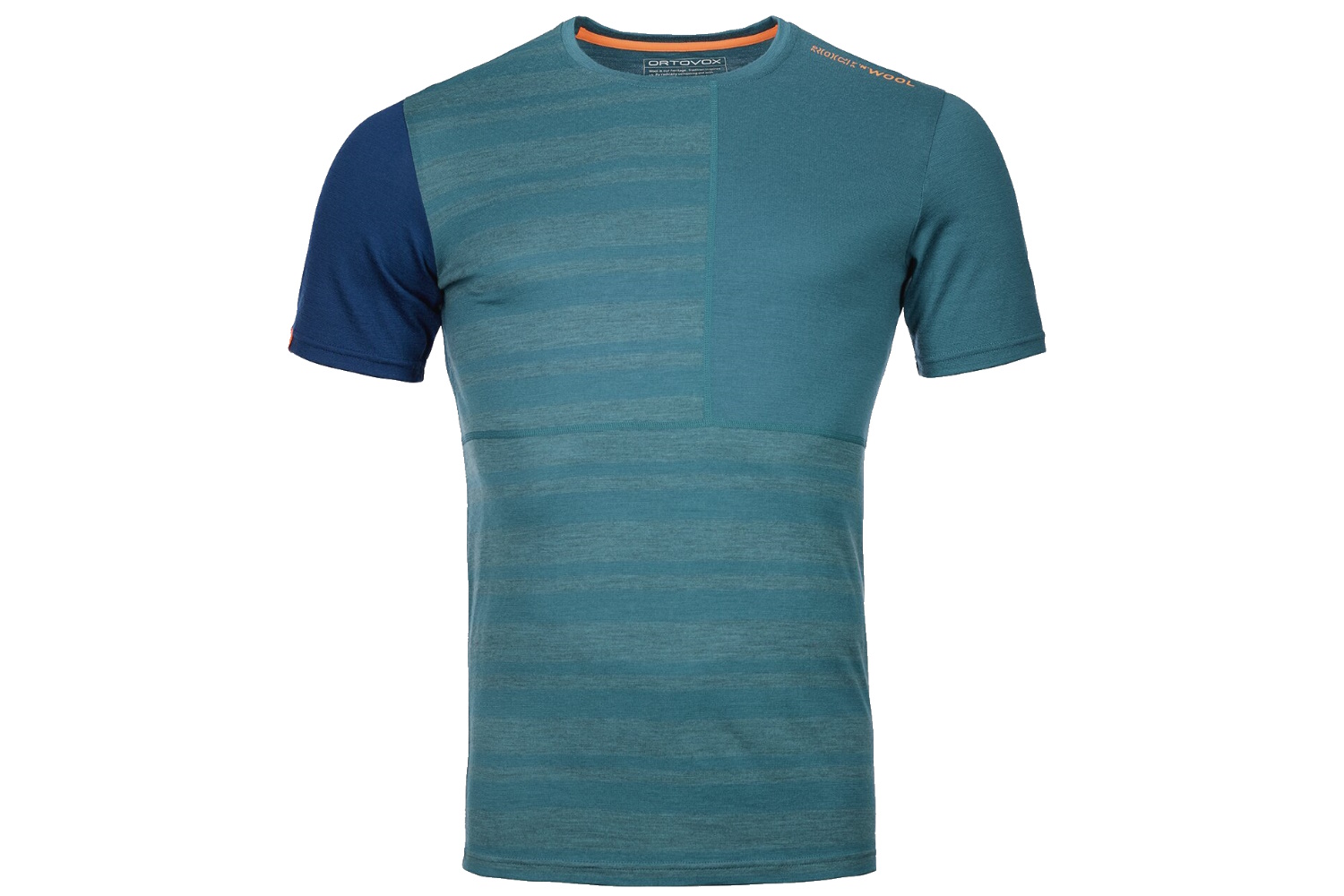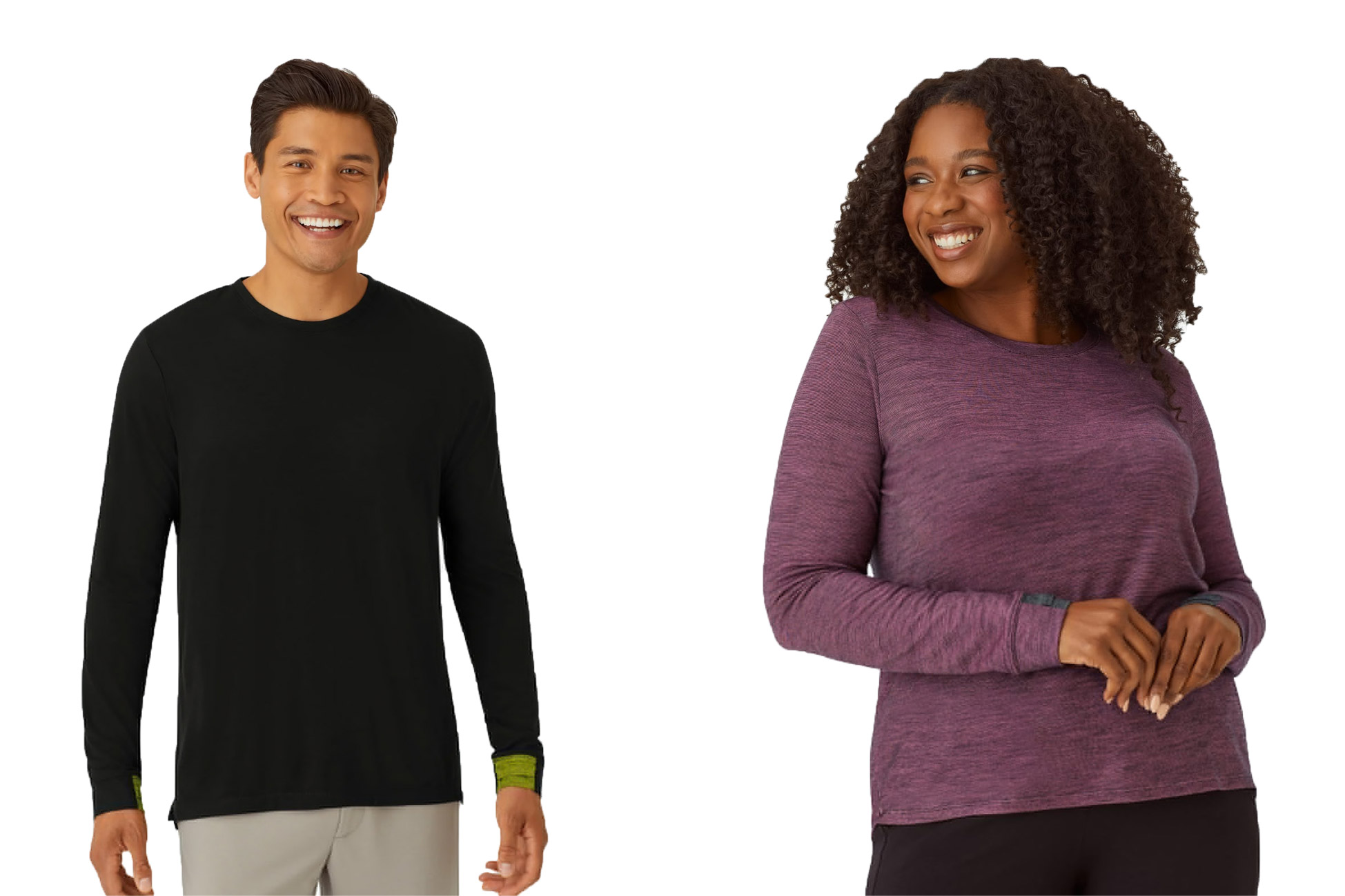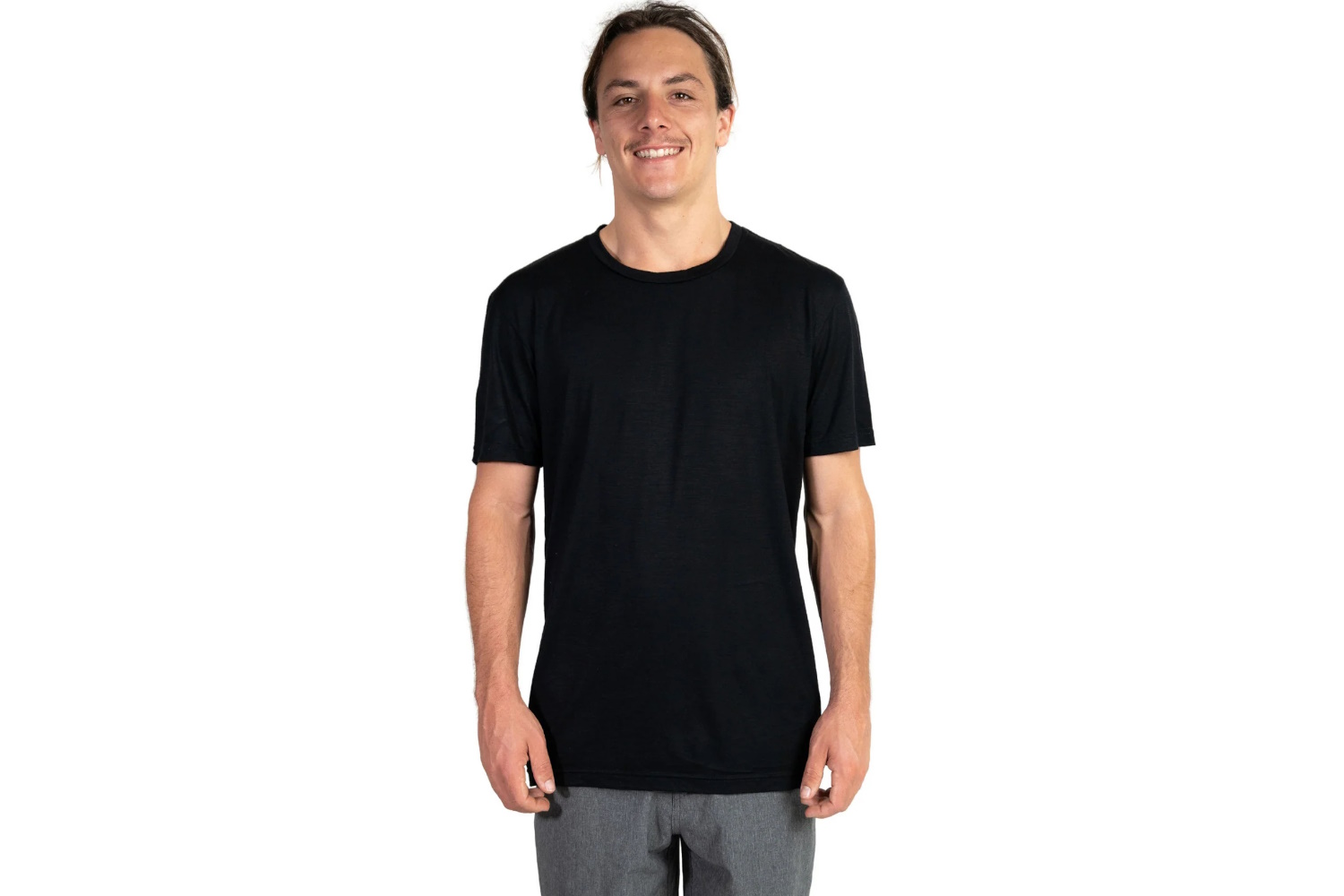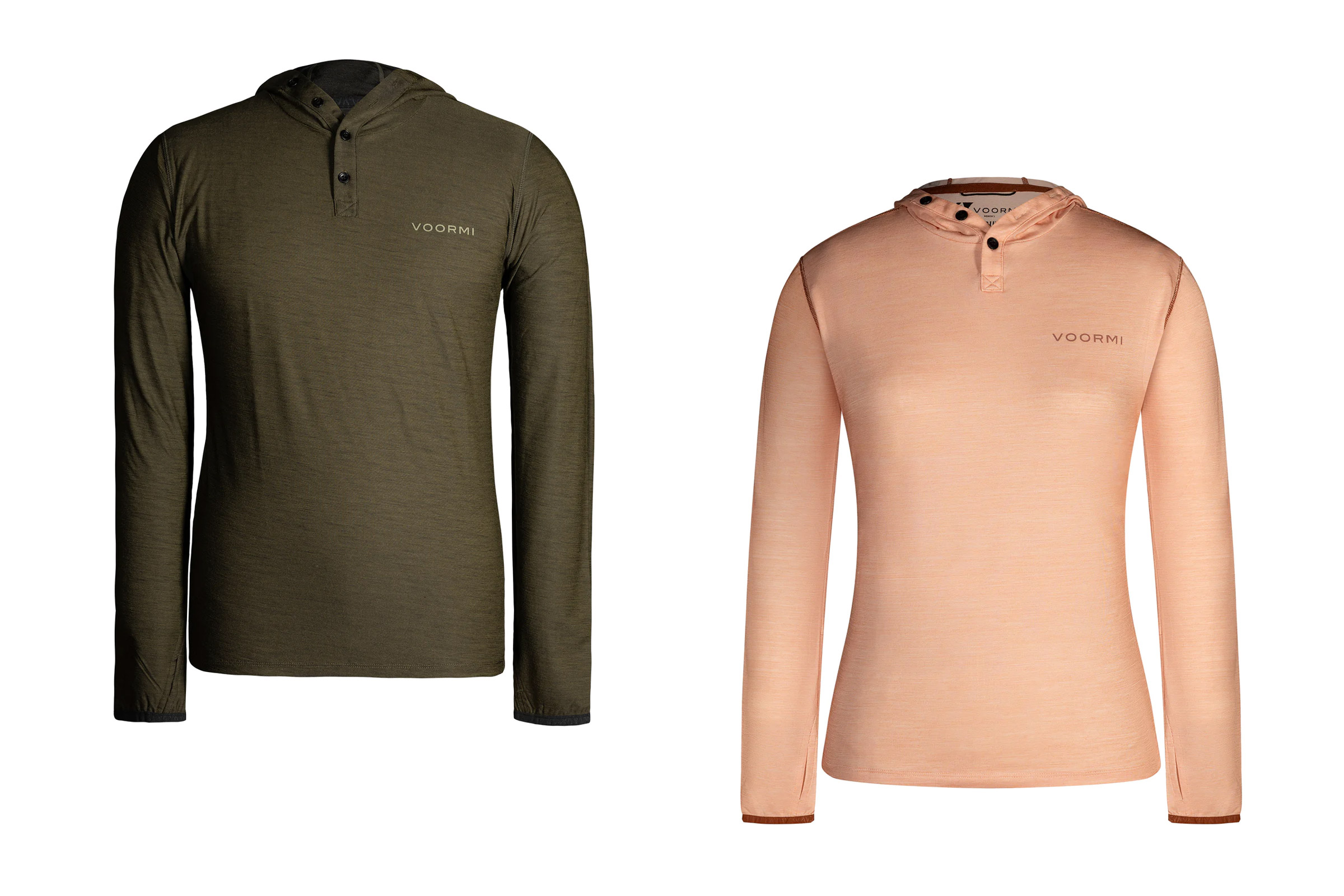The Best Merino Wool Shirts of 2024

Merino wool is a pretty magical fabric. It’s lightweight, wicks away moisture, resists odors, and helps thermoregulate (that is, it’s breathable). We’ve been shouldering hundreds of garments made from this wonder fiber in our quest to find the best merino wool shirts, and now, half a decade down the road, we’ve identified a slate of 12 absolute winners.
The beauty of a merino shirt is the ability to wear it everywhere — and wear it everywhere we do. From international travel in Iceland to mountain bike hot laps in the Kootenays, we’ve sweated through the lot to challenge their breathability, durability, and, yes, odor retention. When it comes to outdoor wear, the sheep’s clothing is dang near tough to beat.
However, there are some tradeoffs for this wonder textile. It can be more fragile and less durable — both in wearing and washing — which is why we considered both 100% merino wool layers and blends (with a majority of merino greater than 60%). It’s not easy to find that perfect, comfortable yet functional, fits-great, do-it-all layer, but merino comes pretty darn close.
At the end of our selection, check out our in-depth Buyer’s Guide, Comparison Chart, and Price & Value sections to guide you to your next wear-all-day shirt.
Editor’s Note: We updated our Merino Wool Shirts guide on September 18, 2024, with the addition of the latest Icebreaker Merino 150 Tech Lite III T-Shirt, a new Price & Value section, as well as additional details on our testing practices and history.
The Best Merino Wool Shirts of 2024
- Best Overall Merino Wool Shirt: Icebreaker Merino 150 Tech Lite III T-Shirt
- Best Budget Merino Wool Shirt: Ridge Merino Journey & Wander Wool Shirt
- Best Luxuriously Soft Merino Wool Shirt: Ibex 24 Hour Short Sleeve Tee
- Best Merino Wool Shirt for Hunting: KUIU ULTRA Merino 120 LT SS Crew-T
- Best Merino Wool Shirt for Travel: Unbound Merino Crew Neck T-Shirt
- Best Merino Wool Sun Hoodie: Ridge Merino Solstice Lightweight Pullover Hoodie
Icebreaker Merino 150 Tech Lite III T-Shirt
Specs
-
Material
100% 18.9-micron Merino wool -
Sustainability Certifications
N/A -
Weight
5.1 oz. -
Warmth Rating
150 (Warm to hot conditions) -
Size Range
XS-XL (women's); S-XL (men's) -
Fit
Regular, with slightly baggy torso
Pros
100% wool construction
No visible branding
Reinforced seams in the shoulders
Impressive odor resistance
Cons
On the pricer side
Needs to be laundered on gentle cycle
Ridge Merino Journey and Wander Merino Wool Shirt
Specs
-
Material
87% 17.5-micron merino wool, 13% nylon -
Sustainability Certifications
N/A -
Weight
5.2 oz. (men's medium) -
Warmth Rating
145 GSM (Warm to hot conditions) -
Size Range
XS-XL (women’s); S-2XL (men’s) -
Fit
Relaxed (women’s); Regular trending fitted (men’s)
Pros
Cozy soft to the touch
Generous cut
UPF 50+ sun protection
Added nylon weave improves durability
Cons
Will shrink up a bit in the wash
Sizing gives some people trouble
Ibex 24 Hour Short Sleeve Tee
Specs
-
Material
100% 18.5-micron merino wool -
Sustainability Certifications
RWS and Woolmark-certified -
Weight
5.1 oz. (men’s small), 3.2 oz. (women’s small) -
Warmth Rating
165 GSM (All-season conditions) -
Size Range
XS-XL (women’s); S-XXL (men’s) -
Fit
Regular
Pros
One of the softest merino weaves we've worn to-date
Moisture-wicking
Lightweight 18.5-micron material
Naturally odor-resistant
Cons
Fits tighter than expected
On the pricier end
KUIU ULTRA Merino 120 LT SS Crew-T
Specs
-
Material
Nuyarn Merino (70% 17.5-micron Merino, 30% nylon) -
Sustainability Certifications
N/A -
Weight
4.3 oz. -
Warmth Rating
120 GSM (Warm to hot conditions) -
Size Range
S-3XL (men’s) -
Fit
Slim
Pros
Nuyarn construction; increased durability and stretch over typical Merino
UPF 50+ sun protection
Available in different camouflage prints, as well as solid colorways
Flat-locked seams, with shoulder seams moved forward to prevent chafing under pack straps
Cons
No women’s cut is currently available
Prominent logo limits the cross-activity wear potential
Unbound Merino Crew Neck T-Shirt
Specs
-
Material
100% 17.5-micron merino -
Sustainability Certifications
Woolmark-certified and WRAP-certified production -
Weight
5.6 oz. -
Warmth Rating
190 GSM (Moderate conditions) -
Size Range
XS-XL (women’s); S-2XL (men’s) -
Fit
Classic
Pros
Classic design that can be dressed up or down
Soft to the touch
Excellent odor resistance
Ethically sourced wool
Slightly thicker GSM is warm in airports and planes
Cons
Can’t be tumble dried
On the pricier side
Ridge Merino Solstice Lightweight Pullover Hoodie
Specs
-
Material
(m)Force Merino – 87% 17.5-micron merino wool, 13% nylon -
Sustainability Certifications
N/A -
Weight
8.7 oz. (men's medium), 7.5 oz. (women's medium) -
Warmth Rating
145 GSM (All-season conditions) -
Size Range
XS-XL (women's); S-XXL (men's) -
Fit
Relaxed
Pros
Comfortable drop hem and loose fit
Helmet-compatible hood
Thumb loops keep sleeves in place
Small screenprinted logos aren't distracting
Cons
Not impervious to holes
Smaller manufacturer stock can sometimes be limited
Smartwool Merino Short Sleeve Tee
Specs
-
Material
88% Merino wool, 12% nylon -
Sustainability Certifications
N/A -
Weight
3.6 oz. -
Warmth Rating
N/A -
Size Range
XS-3X (women's); SM-XXL (men's) -
Fit
Slim (women’s); Body enhancing (men’s)
Pros
Durability from nylon spun core
Excellent moisture management
UPF 20+ protection
Flat-locked seams
Cons
Slightly odd sizing
Plant-based dyed versions have an addition logo
Patagonia Capilene Cool Merino Shirt
Specs
-
Material
65% Merino wool, 35% recycled polyester -
Sustainability Certifications
RWS-certified wool and made Fair-Trade certified -
Weight
3.1 oz. -
Warmth Rating
N/A -
Size Range
XS-2XL (men’s & women’s) -
Fit
Slim
Pros
Reasonably priced
Odor resistant
Good for various temperatures
Breathable
Cons
Signs of pilling and snags after washing
Marginally rougher than 100% merino wool
Slim fit won't be for everyone
Ortovox 185 Rock’N’Wool Short Sleeve
Specs
-
Material
100% 19-micron merino wool -
Sustainability Certifications
RWS and Ortovox Wool Promise-certified, Fair Wear produced -
Weight
5.3 oz. -
Warmth Rating
185 GSM (Moderate conditions) -
Size Range
XS-XL (women's); S-XXL (men's) -
Fit
Fitted with long torso length
Pros
Snug fit for active use
Many different color/design options with asymmetric patterning
More durable weight of merino will last longer than lighter tees
Cons
Long drape can be a bit too long on some bodies
Pricier than many like tees
Seams aren't flat-locked, and ride atop shoulders
Bombas Merino Wool Crew Neck Long Sleeve T-Shirt
Specs
-
Material
50% Merino wool, 50% TENCEL Lyocell -
Sustainability Certifications
N/A -
Weight
Unavailable -
Warmth Rating
N/A -
Size Range
S-3XL (men’s); XS-2XL (women’s) -
Fit
Regular
Pros
Long-sleeve comfort and warmth
Incredibly soft
Flattering color options
Broad sizing range
Tagless
Cons
Tight-fitting in arms and chest
Lighter colors are see-through
Ottie Merino T-Shirt
Specs
-
Material
100% 165 g/m² merino -
Sustainability Certifications
RWS-certified and Australian-made certified production -
Weight
Unavailable -
Warmth Rating
165 GSM (All-season conditions) -
Size Range
XS-XXL (women's); S-XXL (men's) -
Fit
Relaxed (women's & men's)
Pros
Relaxed cut is airy and breathable
Australian-sewn
Affordable pricing for Merino wool
Cons
Not the easiest to find available
Price has been creeping up in recent years
Voormi River Run Wool Hoodie
Specs
-
Material
100% Merino -
Sustainability Certifications
N/A -
Weight
7 oz. (men’s large); 5 oz. (women’s medium) -
Warmth Rating
120 GSM (Warm to hot conditions) -
Size Range
XS-XL (women’s); S-2XL (men’s) -
Fit
Athletic (women’s); Relaxed (men’s)
Pros
Built-in thumb loops
Versatile
UPF protection
Ultralight weight
Soft
Cons
Expensive
Prone to snagging
Merino Wool Shirt Comparison Chart
| Merino Wool Shirt | Price | Material | Weight | Size Range | Fit |
|---|---|---|---|---|---|
| Icebreaker Tech Lite Crew II T-Shirt | $80 | 100% Merino wool | 5.3 oz. | XS-XL (women’s); S-XXL (men’s) | Regular |
| Ridge Merino Journey & Wander Wool Shirt | $60 | 87% Merino wool, 13% nylon | 5.2 oz. | XS-XL (women’s); S-2XL (men’s) | Relaxed (women’s); Regular (men’s) |
| Ibex 24 Hour Short Sleeve Tee | $90 | 100% 18.5-micron Merino wool | 5.1 oz. | XS-XL (women’s); S-XXL (men’s) | Regular |
| KUIU ULTRA Merino 120 LT SS Crew-T | $79 | Nuyarn Merino (70% merino, 30% nylon) | 4.3 oz. | S-3XL (men’s) | Slim |
| Unbound Merino Crew Neck T-Shirt | $90 | 100% Merino wool | 5.6 oz. | XS-XL (women’s); S-2XL (men’s) | Classic |
| Ridge Merino Solstice Lightweight Hoodie | $85 | (m)Force Merino (87% merino wool, 13% nylon) | 8.7 oz. | SM-XXL (men’s); XS-XL (women’s) | Loose and airy |
| Patagonia Capilene Cool Merino Shirt | $69 | 65% Merino wool, 35% recycled polyester | 3.1 oz. | XS-2XL (men’s & women’s) | Slim |
| Smartwool Merino Short Sleeve Tee | $80 | 87% Merino wool, 13% nylon | 3.6 oz. | XS-3X (women’s); SM-XXL (men’s) | Slim (women’s); Body enhancing (men’s) |
| Ortovox 185 Rock’N’Wool Short Sleeve | $100 | 100% Merino wool | 5.3 oz. | XS-XL (women’s); S-XXL (men’s) | Fitted with long torso length |
| Bombas Merino Wool Long Sleeve T-Shirt | $78 | 50% Merino wool, 50% TENCEL Lyocell | Unavailable | S-3XL (men’s); XS-2XL (women’s) | Regular |
| Ottie Merino T-Shirt | $63 | 100% Merino wool | Unavailable | XS-XXL (women’s); S-XXL (men’s) | Relaxed |
| Voormi River Run Wool Hoodie | $139 | 100% Merino wool | 7 oz. | XS-XL (women’s); S-2XL (men’s) | Athletic (women’s); Relaxed (men’s) |

How We Tested the Best Merino Wool Shirts
Folks at GearJunkie have been dyed-in-the-wool fans of Merino since well, forever. Merino wool has been the premium activewear textile of choice for many GearJunkie testers, and we’ve used shirts made from the material for years. In order to find the best Merino wool shirts, we raided our closets, pulled out our most trusted tops, and put them to work.
On top of that, we also surveyed the market for the latest and greatest Merino wool options — finding new technologies like Nuyarn — and added them into the mix. Our search for the best Merino wool shirts available today began with eight woolen tops in 2021, which we selected for their broad appeal and availability, and then set about wearing them threadbare in our search for the softest, most breathable, and hardiest Merino wool shirts out there today.
Field Testing
The beauty of Merino wool tees is that they can be used pretty much anywhere, and we aimed our field testing to be as broad as possible. Each tee was tested during use in at least three different disciplines (hiking, mountain biking, and climbing were our most popular) in order to get a broader understanding of performance.
We got pretty afar in our testing, too: from testing in the deserts of Joshua Tree to the volcanic cinders of Iceland, we’ve packed and worn Merino wool around the world. Because the longevity of a Merino tee can be measured in years, we keep our testing going until the shirt is ready to be retired.
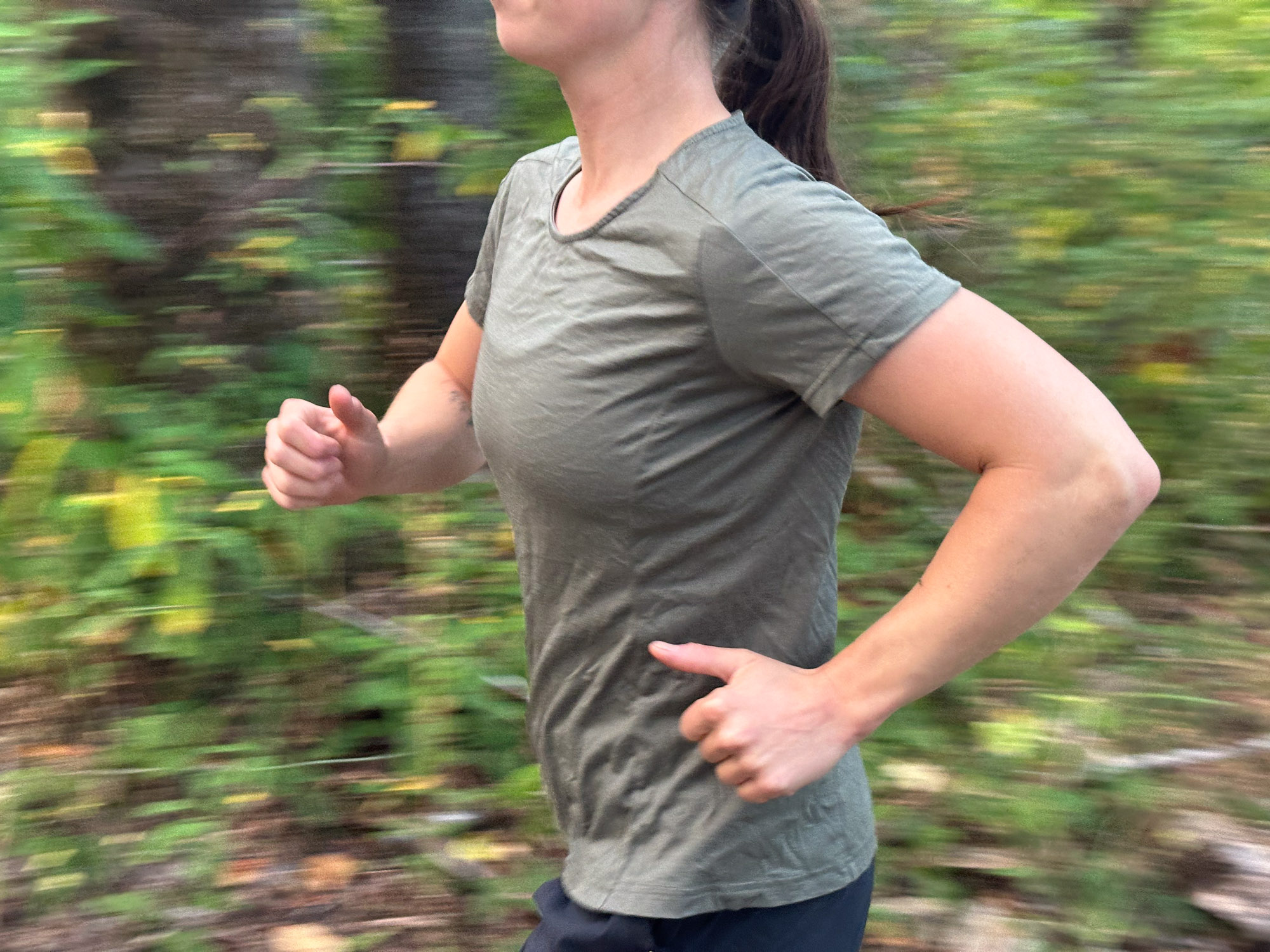
Bench Testing
Comparing Merino wool tees can feel a little like splitting hairs at times, but we dig into the details to separate the good from the meh. This begins with our in-house weighing, which ensures we’ve got accurate weights to compare against, and then moves on to comparing the fit between different shirts — paying attention to things such as drape, how seams contact your body, and material stretch.
We’ve even put together a relative sweat test, where we challenged ourselves to run the same 10-minute circuit in these shirts and note the breathability and overall performance. This may seem like its a little in the weeds, but different blended fabrics pan out to provide markedly different experiences.
Why You Should Trust Us
Our guide is a collaborative effort, with many GearJunkie editors and contributors donning tees across the country to test for our guide.
Senior Editor Nick Belcaster has tested for this guide since 2022 and brings hundreds of hours of gear testing experience to the table. His previous work as an outfitter for a mountaineering guide service saw him equipping those headed into unkind terrains, and that starts with the base layers. With a taste for walking across the country, he has worn Merino wool pieces into tatters, and has a good sense of if a seam will irritate your shoulders after 1,000 miles.
Currently, our Merino wool shirt testing is carried out by Katie Griffith, a climbing guide based in Index, WAash., and Joshua Tree, Calif. Her split climate travels require a versatile wardrobe — certainly so, as Katie is typically on the road in her van. Her most recent testing saw three new Merino tees added to the roster, as well as the inauguration of our ‘sweat test’.
Our team also includes outdoors folk from across the country, who hit the hills and trails decked out in Merino in order to test fit, comfort, style, and durability. We paid special attention to finding layers that had a perfect balance of the softness of Merino while still maintaining some strength over the long run. Our longest-running Merino pieces now have five years of use on them, and we’ll continue to test them to learn more about their ultimate longevity.
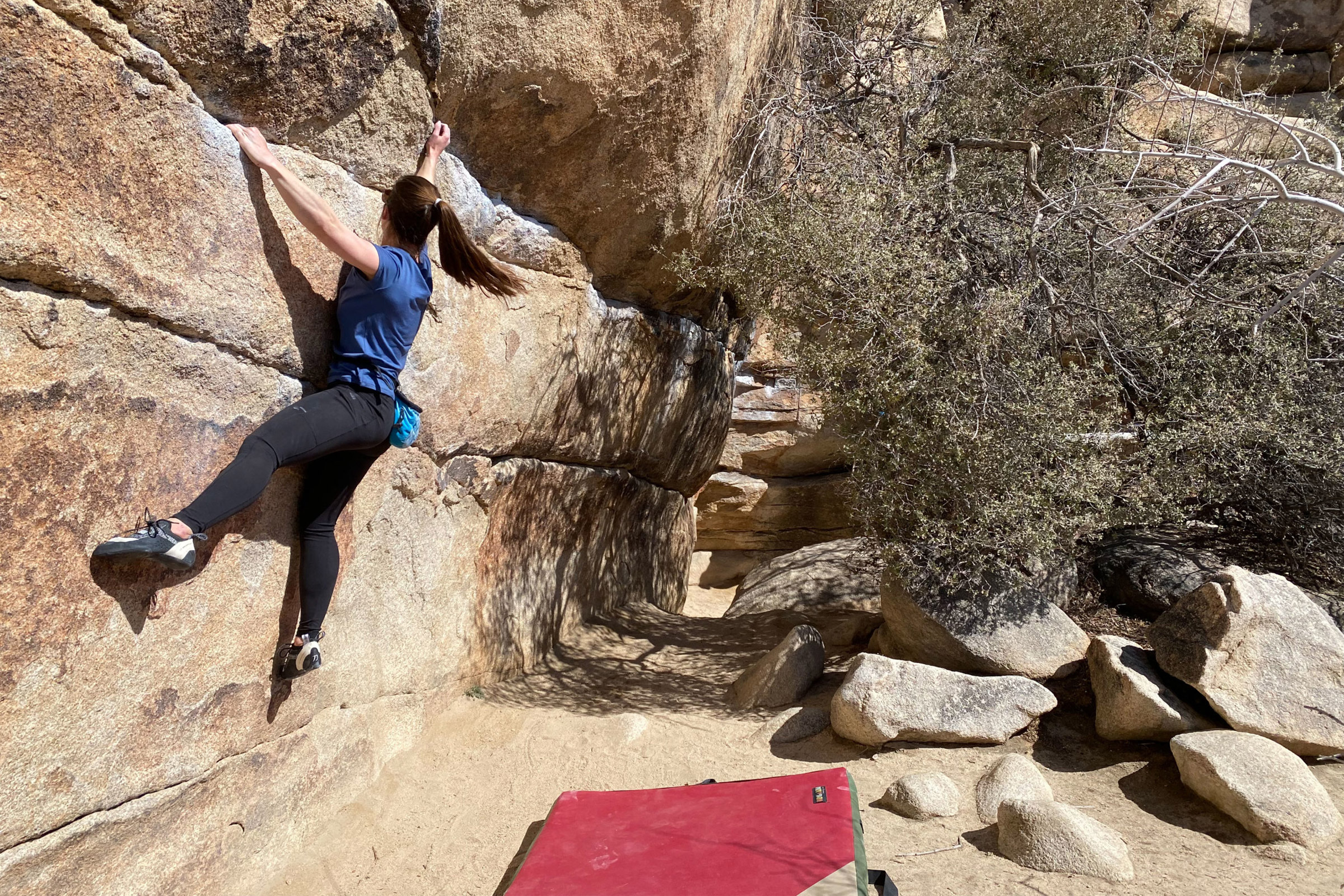
Buyer’s Guide: How to Choose the Best Merino Wool Shirt
What Is Merino Wool?
Merino wool is a natural fiber that is grown by Merino sheep, which are thought to be the oldest breed of sheep in the world and have adapted to thrive in harsh environments, such as the highlands of New Zealand, Australia, and South America. Their wool is much finer and softer than other strong wool breeds, and when woven into garments provides a number of other benefits that we all can appreciate.
For one, Merino wool has a unique scale-like structure that aids it in wicking moisture away from the skin — something that synthetic fibers aren’t great at. These structures are also the reason Merino wool is so good at temperature regulation, with sweat being transported away when it’s hot and insulating air being trapped next to the skin when it’s cold.
Merino wool also isn’t bogged down by the typical funk of synthetic garments, and is amenable to being layered over top of due to its breathability. There are some tradeoffs, however, which come in the form of overall durability (full Merino weaves can develop holes over time), and price. It isn’t cheap to produce hard-working fabrics, and you’ll certainly fork over the dough for the good stuff.

Sustainable Wool Sourcing
Merino wool comes from sheep, and since we want to treat our woolen friends with all of the respect they deserve, the vast majority of Merino wool garment manufacturers are now demanding wool that has been produced in sustainable and ethical ways. One practice of concern has been mulesing, which removes skin from the hind end of sheep to limit infections and has been banned in New Zealand. Thankfully, many manufacturers now guarantee their Merino to come from mulesing-free farms.
Because of this demand for sustainable wool, a number of different non-profit entities offer certifications and audits of the Merino wool supply chain. One such is the Woolmark Company, which is an Australian non-profit that tests Merino wool to ensure quality, durability, and traceability. Another is the ZQ Program, which ensures that Merino sheep under their certification are treated ethically, are never mulesed, and that the environment is taken into consideration at all steps of the fiber-production process.
Finally, the Responsible Wool Standard, or RWS, is another global certification that ensures that the entire supply chain from beginning to end upholds the tenets of animal welfare protection, land preservation, and working conditions and is all audited by third-party certification bodies. It is important to note that while some companies may not advertise their tees to meet these standards, many still do — they just haven’t undergone the specific certification process.
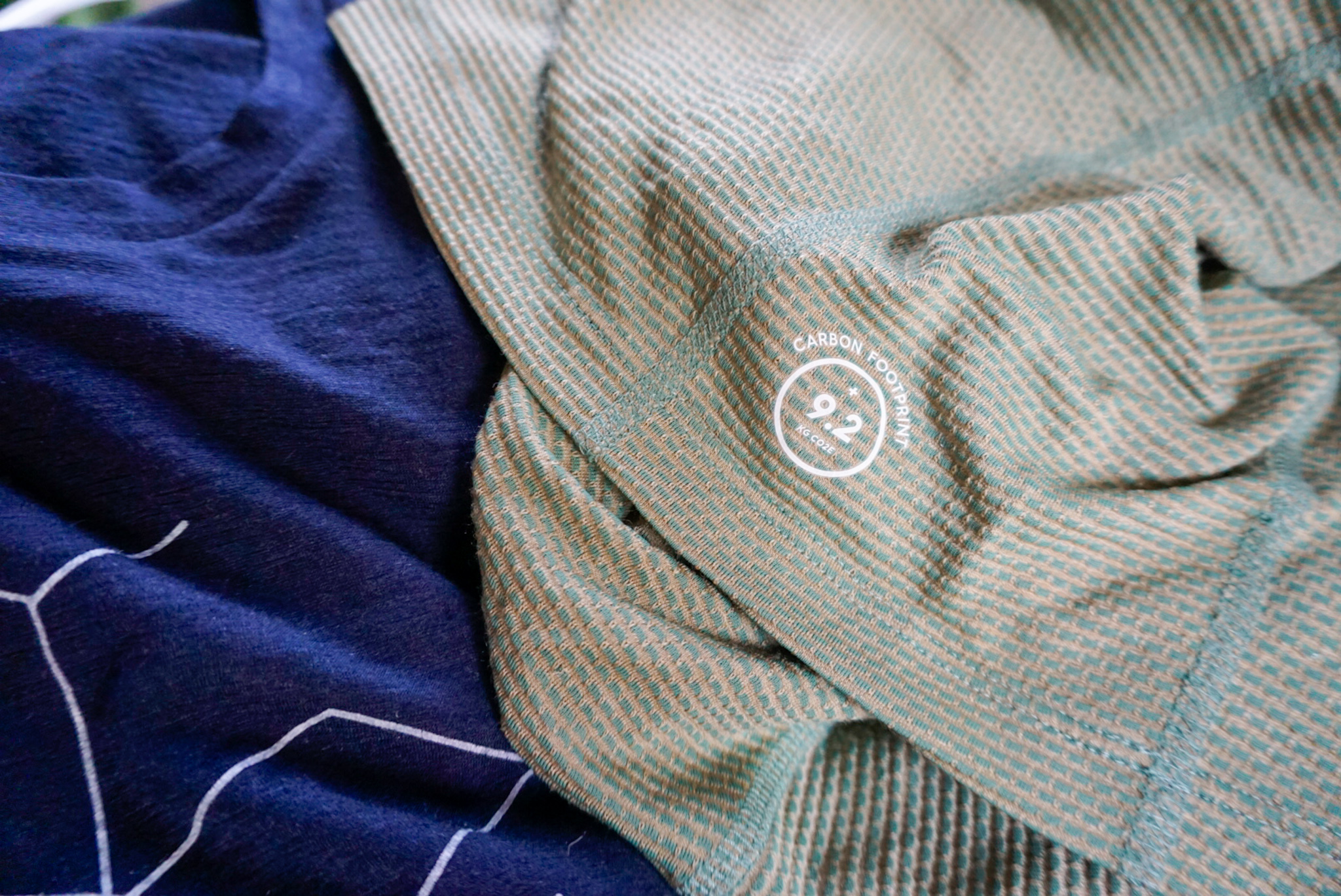
100% Merino and Merino Blends
The decision to go full Merino or with a blend will be a personal preference. That said, there are certain things that 100% Merino wool is hands-down good at. First, 100% Merino wool provides a more next-to-skin feel than a Merino blend, especially those that have a higher synthetic content. Second, Merino wool offers natural antibacterial, UV protection, and moisture-wicking properties that synthetics don’t naturally have.
However, when it comes to a blend, there are certain beneficial features, such as tending to be cheaper and easily outlasting their more fragile counterparts. Simply: adding smaller percentages of synthetics can help to shore up the deficiencies of Merino, without totally stripping out the benefits.
If you want a Merino layer for hiking, hunting, or just spending time outside, consider all the uses 100% Merino wool has to offer. And if you’re investing in a Merino shirt for, say, a rugged backpacking trip or rock climbing, or if durability is of high importance, then go for a blend.
Also, if you are brand new to Merino and just want to try it out and see what all the fuss is about, a blend can be a bit more wallet-friendly the first time around.
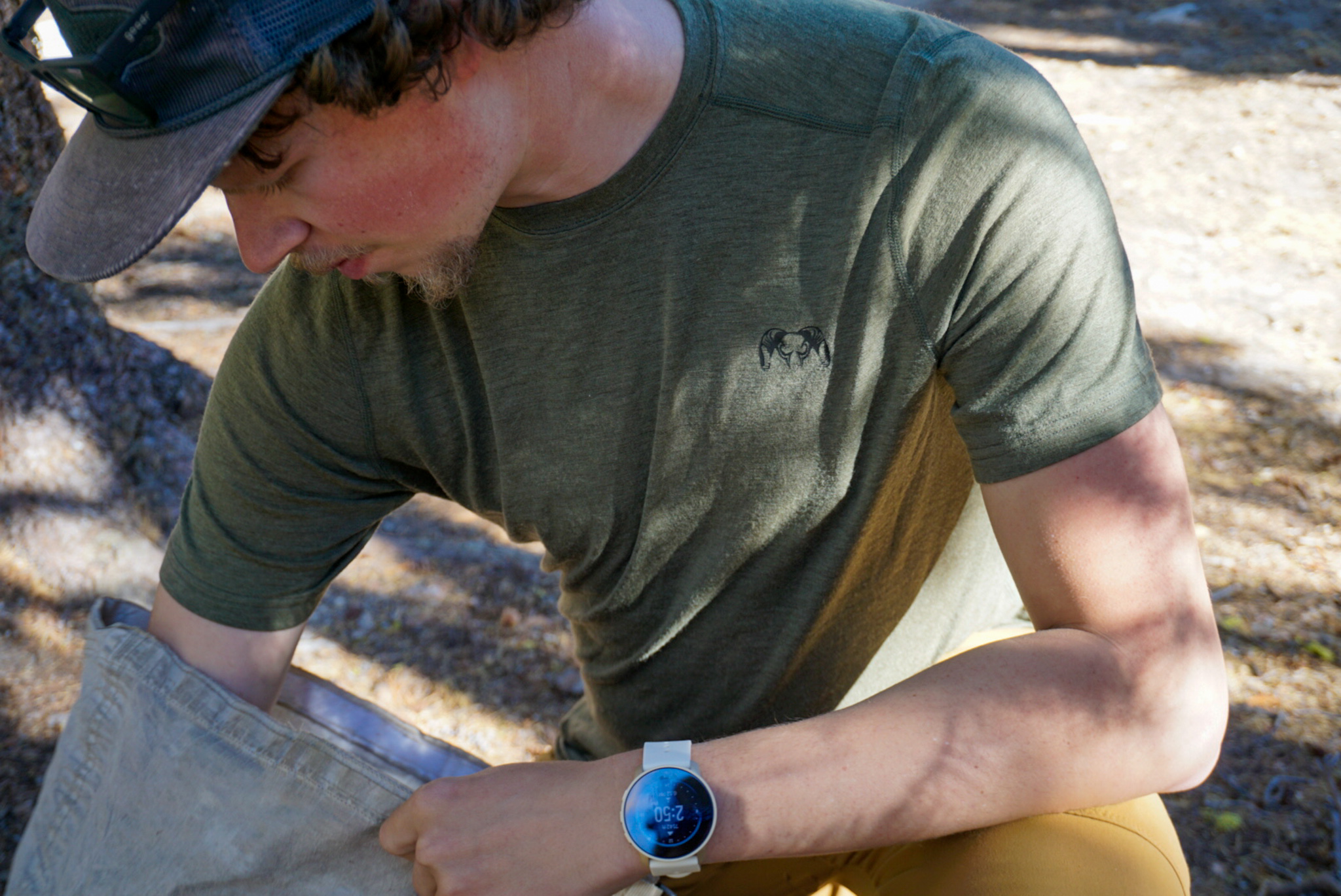
Polyester: Polyester is a manmade material that has much better dry times than Merino wool and resists shrinking in the wash — something Merino struggles with. A blend can offer a textile with components that complement each other, so you end up with a garment that works for many situations.
Most Merino wool shirts tend to use as high of a percentage of wool as they can get away with while still receiving the benefits of polyester. We prefer at least 75% Merino wool in our blended fabrics. In our testing, it was no surprise the 100% Merino shirts were the softest of the bunch.
Nylon: Another manmade fiber, nylon can add impressive durability to fabric blends. Garments like the Ridge Merino Journey Merino Wool Shirt incorporate a percentage of nylon into their weave and gain strength in return. It doesn’t take much to move the needle in terms of added durability, and we found a 20-30% nylon blend to be preferable.
Technologies like the Nuyarn used in the KUIU ULTRA Merino 120 LT SS Crew-T draft Merino wool around a nylon core in order to offer the benefits of nylon while avoiding compressing the wool. Many other brands also offer similar nylon/Merino blends, all with the same effect.
TENCEL Lyocell: A branded fiber that comes from the pulp of eucalyptus trees, Lyocell is similar to rayon in construction but offers a highly sustainable process where both solvent and water are recycled during the weaving.
Garments that use Lyocell in their blends have high-strength properties due to the high tenacity of the fabric.

Thickness and Weight
Another important aspect to consider when shopping for a Merino wool layer is thickness and weight.
When it comes to weight, you’ll come across something written as GSM or g/m² — the weight of the material. Simply put, the lower the number, the thinner the material. For all-year-round layers, you’ll want something on the lower side, like around 120 to 180 g/m². And for extra warmth, you’ll want to go higher.
As for thickness, it’s all about the microns (µm) — the diameter of a single wool fiber. The lower the number, the thinner it is. It also means it’s softer and more expensive. In our opinion, the lower the micron, the more you’ll want to live in it, but you’ll need to take extra precautions due to its delicateness. For reference, the average human hair is about 70 microns thick, while the average Merino wool fiber is between 15-20 microns.
Fine Merino: Fine Merino represents the division between true Merino fibers and fibers that are sourced from Merino sheep that have been crossbred with another breed for enhanced durability (but greater itchiness). These fine fibers are typically between 20 and 18 µm, and are the greatest portion of wool shorn from Merino sheep. Durable shirts like the Ibex 24 Hour Short Sleeve Tee are made with Merino in this tier.
Superfine Merino: Superfine Merino fibers take the softness up another notch and are typically 16-18 µm. These fibers rival cashmere for its plushness, and will come with some additional cost for garments made with it. Some of our favorite Merino shirts, like the Unbound Merino Crew Neck and Ridge Merino Solstice Lightweight Pullover Hoodie, are made with superfine Merino.
Ultrafine Merino: The most premium Merino wool, these fibers are sub 16 µm and are rather delicate for true everyday wear for outdoors folk. But for the money ($$$), this is the best stuff you can get your mitts on.
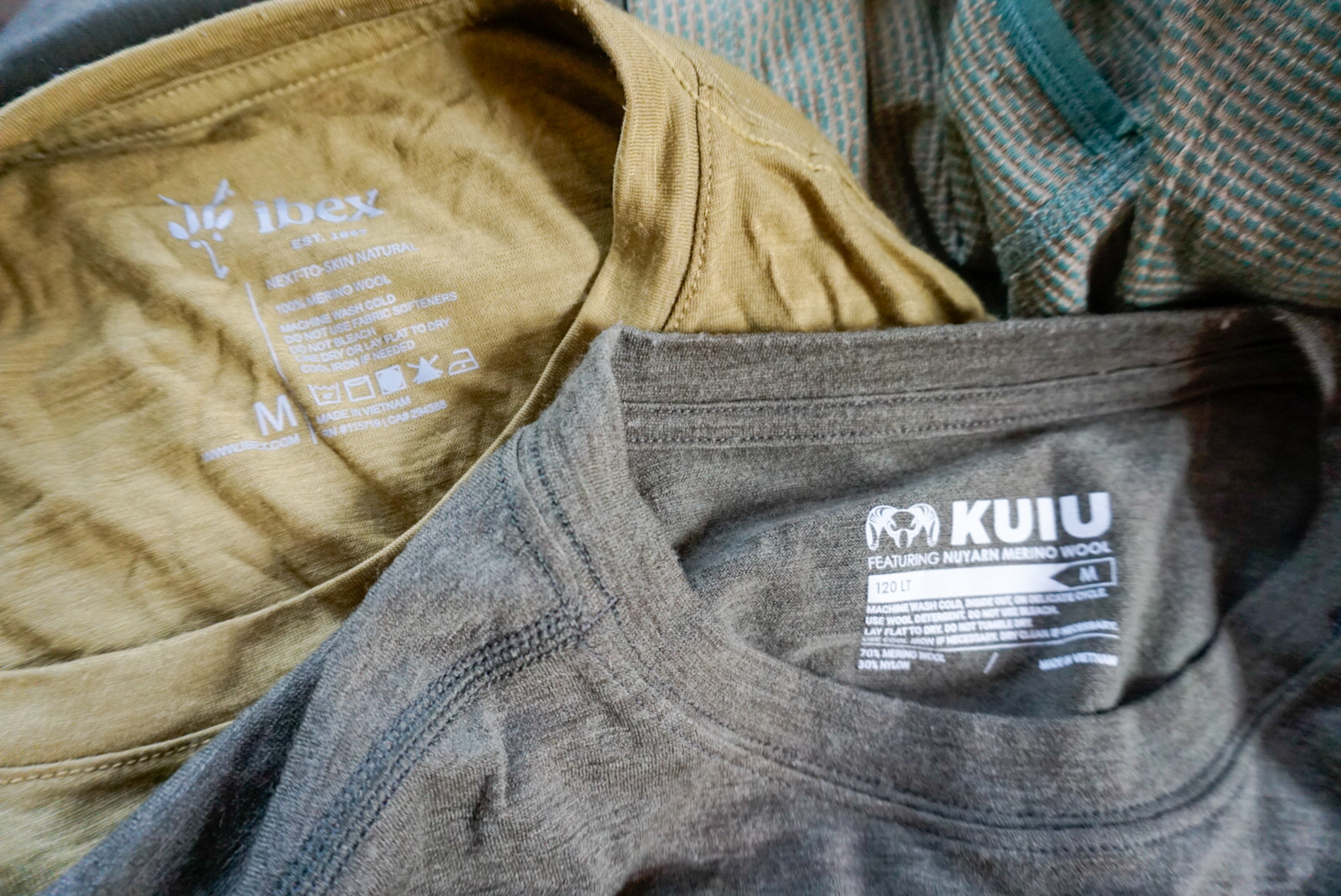
Fit and Styles
We included a variety of shirts on this list: tees, long-sleeve tops, and even some hoodies. Each has advantages, depending on the type of activity you intend to engage in.
For those who need something for primarily cold temperatures, a layer that is tighter-fitting with loads of mobility that won’t feel restrictive under an extra one or two layers is recommended. Others who want something that can be worn all year, like our staffers, should go for something looser with a more relaxed fit.
However, we did not include all of the merino wool layers under the sun. We focused on shirts because they are versatile for a variety of weather conditions and activities. Some of the layers we tested are a little more sporty, while others, like the Unbound Merino Crew Neck, have a classic cut that’s a bit more versatile. If you are looking for winter-specific Merino base layer sets, zip-up Merino layers, or Merino underwear (yes, it’s a thing), we’ve got separate coverage on that, too.
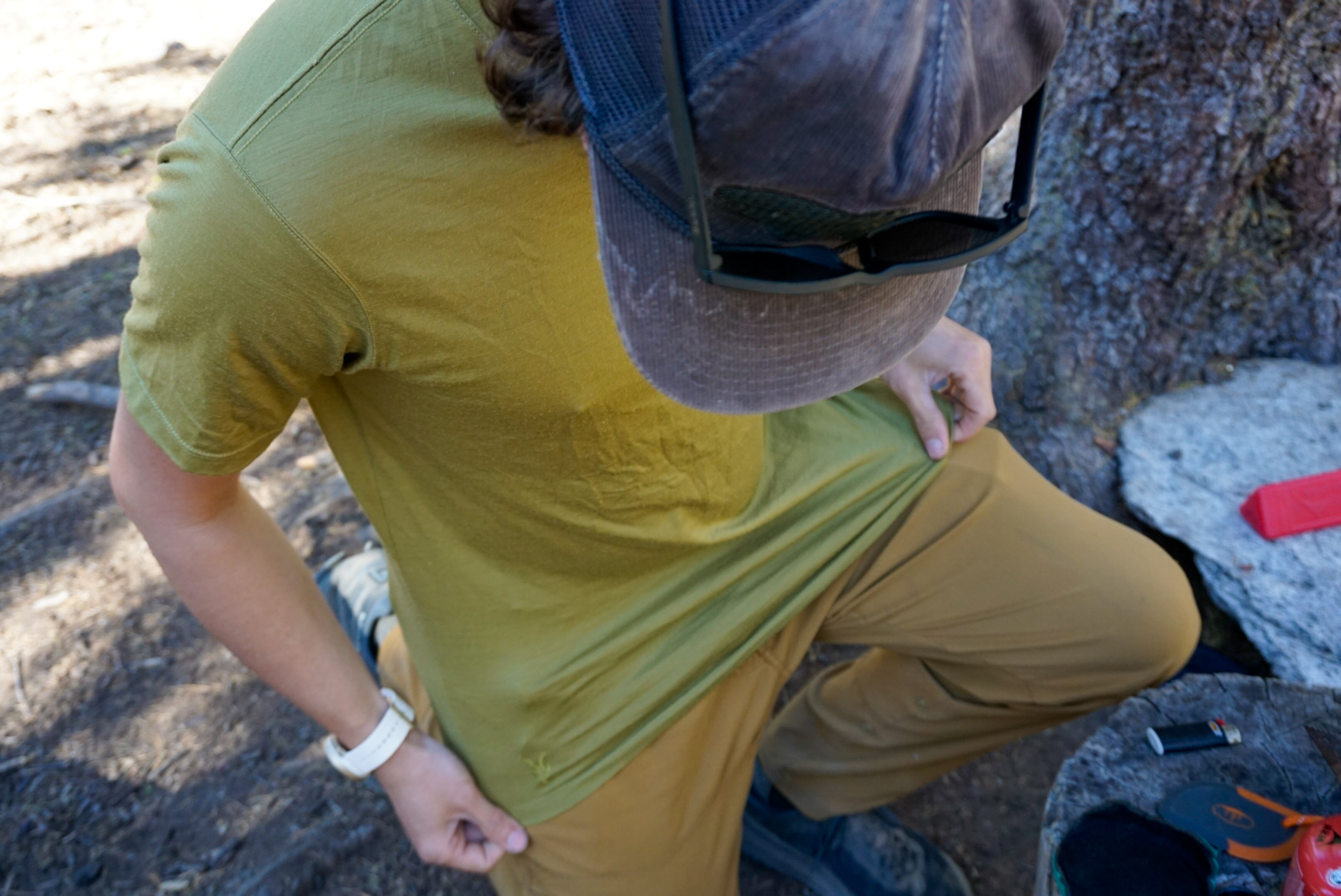
Color
Layers that come in an assortment of colors are always welcome — they mix things up from the monotonous black and gray we often see. However, while we love mixing things up, our testers have routinely noticed layers that come in pastel colors tend to be sheerer than navy, black, and dark gray.
Keep this in mind if you don’t want your undergarments showing through, unless you strictly use them as a base layer and will always be covered.

Price & Value
When you buy a Merino wool shirt or garment, you aren’t just buying, you are investing. Investing in a higher-quality, naturally odor-resistant, and hopefully much longer-lasting layer. Synthetics are great, and there can be high-quality synthetic blends that have the same properties, but many folks swear by Merino.
Budget
Why the higher price in the first place? Merino wool is a more expensive fabric — more time-intensive to produce, expensive to import, and more fragile to work with compared to thicker synthetic yarns. So, we always weigh that factor when purchasing anything made with Merino. That being said, you can still find deals, and these will more often use coarser Merino fibers and are often blended to reduce the cost of added wool.
The Ridge Merino Journey and Wander Merino Wool Shirt ($60) are still the best thing going currently, and combine a fine 17.5-micron Merino with nylon for a cost-conscious entry into these types of tees. The Patagonia Capilene Cool Merino ($69) is another notable bargain, but at a lesser 65% Merino blend.
Mid-Tier
Everyday Merino tees will typically run you $80-90, and despite only paying a bit more than budget tees, you get much nicer shirts for the money. 100% Merino shirts like the Icebreaker Merino 150 Tech Lite III ($80) are common, though you will also still see blends at this price range — just with finer Merino.
The 24 Hour Short Sleeve Tee ($90) is a great pick for those after the softest wool out there, and it’s a nice upgrade for those willing to spend a little more. You can also get into a long-sleeve or hoody at these prices, like the Ridge Merino Solstice or Bombas Merino Wool Crew Neck.

Premium
If you’re paying more than $100 for a T-shirt, it had better be some T-shirt. Thankfully there are some pretty premium Merino tees out there, and if you really want to invest in the fabric, you’ll be getting some very high-quality stuff. These tees are all 100% Merino, like the Ortovox 185 Rock’N’Wool Short Sleeve ($100), where you’re paying for the fact that they produce 60% of its line in Europe.
The Voormi River Run Hoodie ($139) is the priciest piece of Merino wool we’ve tested to date, and while we think the blended Ridge Merino Solstice is the better hoodie for most people, it’s undeniably nice to have a fine 100% Merino version of the same thing.
Frequently Asked Questions
Merino wool is a natural material, meaning it doesn’t come from manmade plastics or synthetics. It’s lightweight and soft to the touch. It wicks away moisture and odors, and it helps regulate body temperature. All of that wrapped into a single fabric. No wonder humans have been using and wearing wool since 10,000 BCE.
However, because of Merino’s great properties, it is in high demand and usually more expensive than other fabrics. The narrow sourcing and supply chain of Merino wool also contributes to its market value. The majority of the wool on the market is produced in Australia, Argentina, and New Zealand.

In simple terms, yes. When it comes to exercising or spending lots of time in the outdoor elements, double yes. Merino is better in the sense that it is a natural and porous fiber. So, if you are sweating, that sweat can escape — this is what makes Merino a natural at regulating moisture and body temp, wicking away odor, and cooling.
Cotton is an especially thick synthetic fabric, much different than lightweight or nano-spun synthetics, and much different than Merino wool.
Heavy wool blankets or wool-lined slippers might evoke ideas of itchy, coarse fabric, but put those thoughts aside — Merino wool is different. Merino wool is notoriously fine — with fine, fragile, and soft fibers.
Merino garments are even measured by the tiny diameters of the fibers, called microns. Most Merino wool shirts we tested used wool that measured between 17.5 and 20 microns.
And the smaller the microns, the finer the fabric. If you are looking for the softest merino layer money can buy, you’ll want to look somewhere in the 15-17-micron fabric range.
Merino wool (wool from a sheep) naturally traps air and retains heat to keep you warm. But, thanks again to its porous fiber nature, it’s still breathable at the same time.
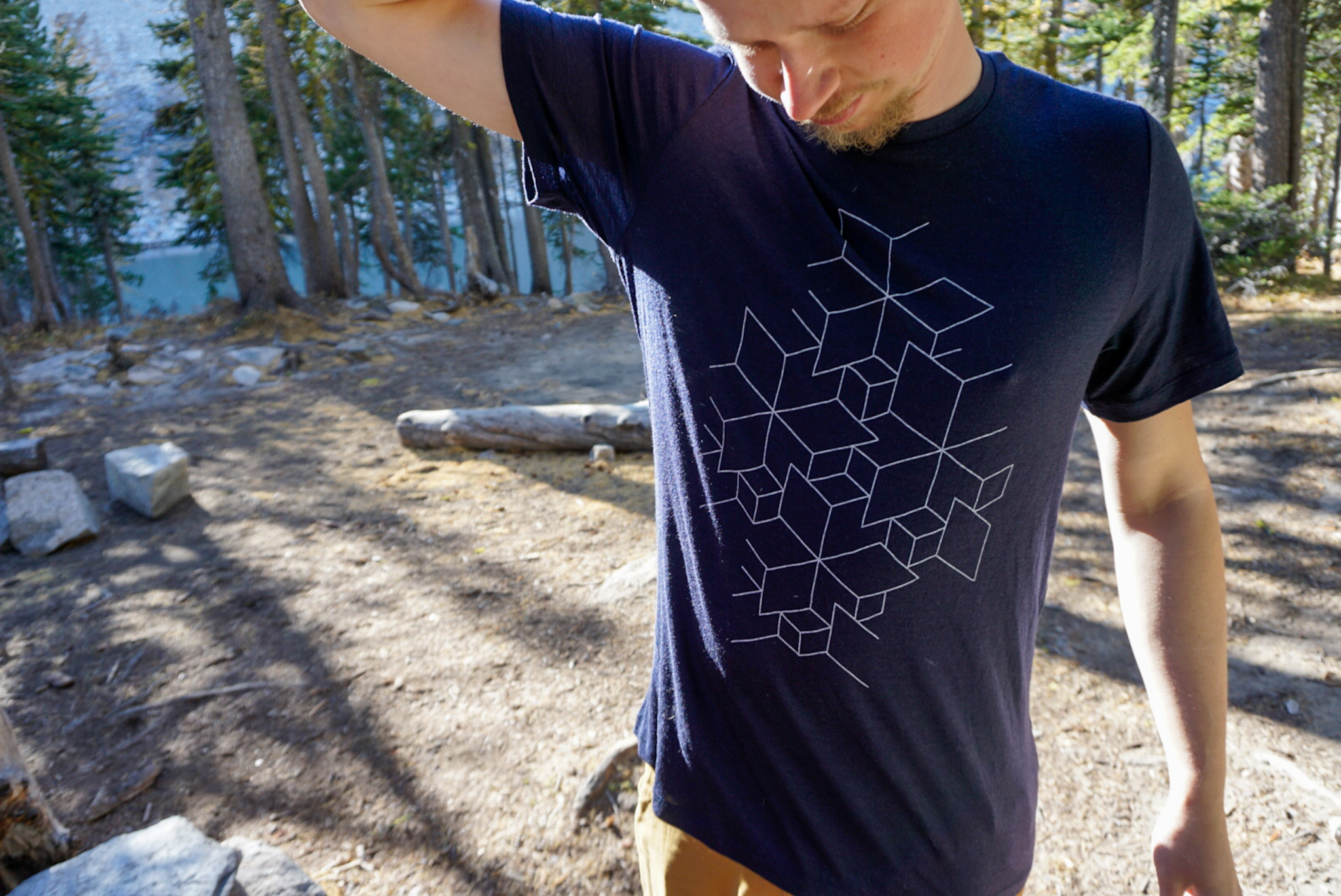
The fact that merino wool both retains heat and wicks away sweat — it works to both warm you up and cool you down — is one of its best properties. Wool keeps you cool by letting sweat escape through the fibers and away from your skin and body. This means you won’t get clammy or chills, and it also helps with wicking body odor.
Other fibers — synthetics or plant-based fabrics — are not as fine, porous, or breathable. They’ll do the job, but not as good a job. (That being said, our staff has a great time testing the latest in bio-based fabrics — unique layers sewn with everything from bamboo to hemp to corn.)
You’ll want to treat your merino shirts and layers with care. Because merino is a natural fiber, you also don’t want to use bleach, scents, or fabric softeners that can clog up the wool and prevent merino from doing all the things it does naturally.
Washing every few wears — sometimes even just once or twice a month — with cold or warm water and a mild soap is all you need. Even when we wear a lot of merino wool when outdoors, we try to wash sparingly. And we always air dry or hang it to dry.
The Best Men’s Base Layers of 2024
We tested the best men’s base layers of 2024 with options for every budget. Top picks include Patagonia, SmartWool, and more.
The Best Base Layers for Women of 2024-2025
We tested and found the best base layers for women including top picks from Smartwool, Icebreaker, Black Diamond, and more.
The post The Best Merino Wool Shirts of 2024 appeared first on GearJunkie.

